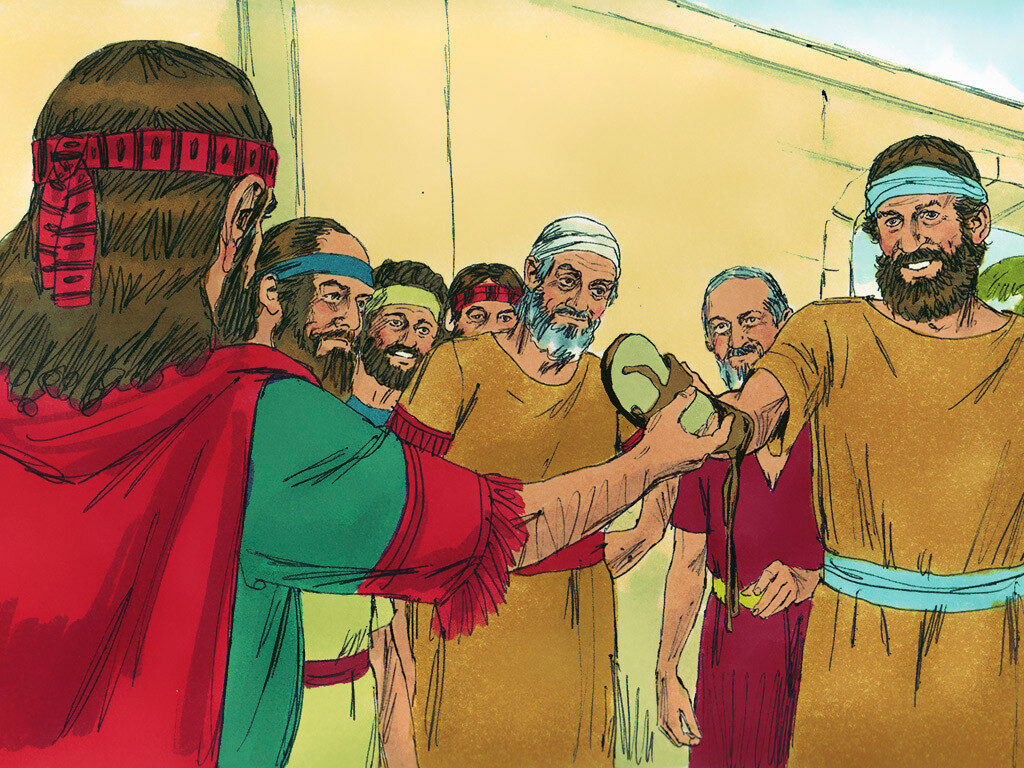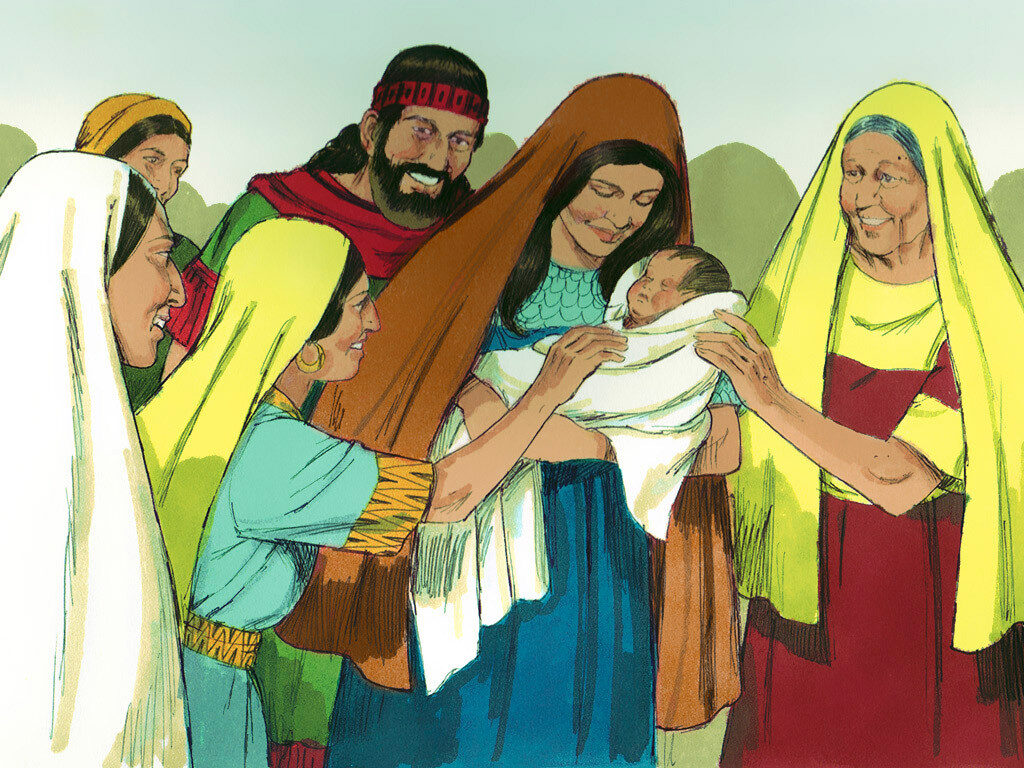By Cheryl Mah
Read: Ruth Chapter 4 & Watch “Restored From Shame” sermon
In the previous chapter, Naomi had sent Ruth to Boaz with the intention of soliciting a marriage proposal from him. While he was flattered by Ruth’s attention, Boaz was honest and informed her that there was another closer kinsman-redeemer who could marry her too. However, if the man did not want to, then Boaz would do the honourable thing by taking Ruth as his wife.
Naomi’s road to redemption

Now, Boaz went to the town gate and met with the other kinsman-redeemer, gathering ten of the town’s elders as witnesses. He explained Naomi’s situation and asked if the kinsman-redeemer would buy Naomi’s land. The man agreed, but when Boaz told him this meant that he would also acquire Ruth to maintain the name of the dead men (Naomi’s late husband and sons) with the property, the man refused and asked Boaz to do it himself.
Boaz then declared to the elders and the townsfolk that he would buy Naomi’s land and acquire Ruth as his wife.
Ruth became Boaz’s wife. She conceived and gave birth to a son named Obed. The women in the town praised God and reminded Naomi of God’s goodness and blessings through Boaz the kinsman-redeemer, Ruth the faithful daughter-in-law, and their son Obed who will continue the family’s lineage and eventually become the grandfather of King David.
[Note: When the women mentioned “Naomi has a son!”, it is understood that Obed is Naomi’s grandson. From an Israelite’s point of view, the child was the heir of Naomi’s late husband Elimelech’s estate, thus considered her grandchild.]
In the beginning of the book of Ruth, Naomi was an embittered woman who had faced devastating losses in her life. When Ruth and Boaz entered her life, they contributed to Naomi’s life being transformed from tragic and destitute to one full of joy, providence, and redemption. How did God use Ruth and Boaz to plant the seeds of blessings in Naomi’s life and what does the Book of Ruth teach us about how God works?
1.God uses unlikely people in His plans
As a foreigner from Moab (a country that practised idol worship) and an impoverished widow, most people looked down on Ruth as unimportant and inferior, but God did not (Matthew 5:5). Instead, He placed her in Naomi’s life to help carry out His plan that culminated in her becoming a part of Jesus’ lineage (as the great-grandmother of King David) (Ruth 4:18-22).
In selecting Ruth to be the ancestor of the Messiah, God chose one of the “least of these” to be weaved into the big story of salvation. God’s decision to include this poor, foreign widow in the story of divine redemption demonstrates that His grace is for all people (Titus 2:11) and that no person is too insignificant to be used for His glory (Ephesians 1:11).
2.God values people of noble character
What is integrity? Integrity is the quality of having strong ethical or moral principles and showing consistent and uncompromising adherence to them even if nobody is watching. Like Ruth and Boaz, a person of noble character and integrity must possess high morals; and be honest and upright in their ways.
Ruth honoured and respected her mother-in-law Naomi and God. She took the initiative to work hard in the field to provide food for them. She was steadfast in her love and duty to her Naomi. On the other hand, Boaz behaved as a gentleman should. He was respectful, placed the needs of others above his own, as well as honest and responsible towards Ruth. Despite being put in a vulnerable position he did not take advantage of Ruth.
There are many people in the world who have exchanged a good reputation for money, wealth, and material things. However, those who possess good character and integrity are placed in high value in God’s eyes (Job 2:3).
3.God takes small steps to accomplish great things
Because He intended for Ruth to become a part of Jesus’ lineage, God had to pull together a series of events such as the famine and Naomi’s move to Moab, her return to Bethlehem, meeting with Boaz – and more – and weaving the entire story into His big plan.

Throughout the story, tiny details are sprinkled and hidden that may be easily missed orassumed (example: how Ruth ‘happened’ to glean in Boaz’s field). Although God’s invisible grace manifested in (sometimes) trivial yet visible kindness and provision in Naomi’s life through Ruth and Boaz, Naomi’s initial bitterness caused her to be blind to God’s favours in her life that appeared to be coincidences.
Matthew 13:31-32 reminds us that God’s Kingdom grows like how a tiny mustard seed grows into the largest tree in the forest. It is often easy to fixate on the recipient (ie. us) of God’s kindness and the channel through which He displays His kindness (ie. people around us etc), but we must be reminded of the source of the kindness ie. God – and acknowledge the fact that all good and perfect gifts are from God (James 1:17).
4.Redemption is for everyone
The story of Ruth and Boaz’s relationship carries a deeper symbolism, which also hints at the coming of another Redeemer, Jesus Christ. As Boaz was Ruth’s redeemer, so is Christ our Redeemer. Ruth wanted to be married to Boaz, yet it was Boaz who initiated the marriage with Ruth. In the same manner, we must want to have a relationship with Christ, but it is Him who chooses us (John 15:16). Additionally, we will only be able to receive salvation if God leads us into it (John 6:44).
It is comforting to know that no matter how hopeless we feel or even if we have nothing to offer God, we can be assured that God will redeem us (John 14:27). All He wants is for us to surrender our hearts to Him (Deuteronomy 4:29).
The book of Ruth is a beautiful example of how God can take a hopeless situation and turn it into something glorious. This story reminds us that no matter what lies in our past, or how difficult our circumstances are, a tiny bit of faith can make a huge difference. Despite our obscurity or the mess in our lives, God still finds a way to use the most unlikely people (which may be us!) in ways we cannot imagine in accomplishing His plans.
Naomi’s life story is, perhaps, best summed up by Jeremiah 29:11-14:
For I know the plans I have for you,” declares the LORD, “plans to prosper you and not to harm you, plans to give you hope and a future. Then you will call upon me and come and pray to me, and I will listen to you. You will seek me and find me when you seek me with all your heart. I will be found by you,” declares the LORD, “and will bring you back from captivity. I will gather you from all the nations and places where I have banished you,” declares the LORD, “and will bring you back to the place from which I carried you into exile.”
———————————————————————————————————————
Reflection Questions:
- What lessons can be learnt from Ruth and Boaz’s relationship which could be applied to modern day relationships?
- Take a moment to consider how God works in small ways to accomplish a bigger plan. Has there been a time when God has done this for you? What was it?
- How did Ruth’s personal story influence the future of the nation of Israel? Have you ever thought about how your life can have an impact on future generations? If so, how would you change the way you are living today?